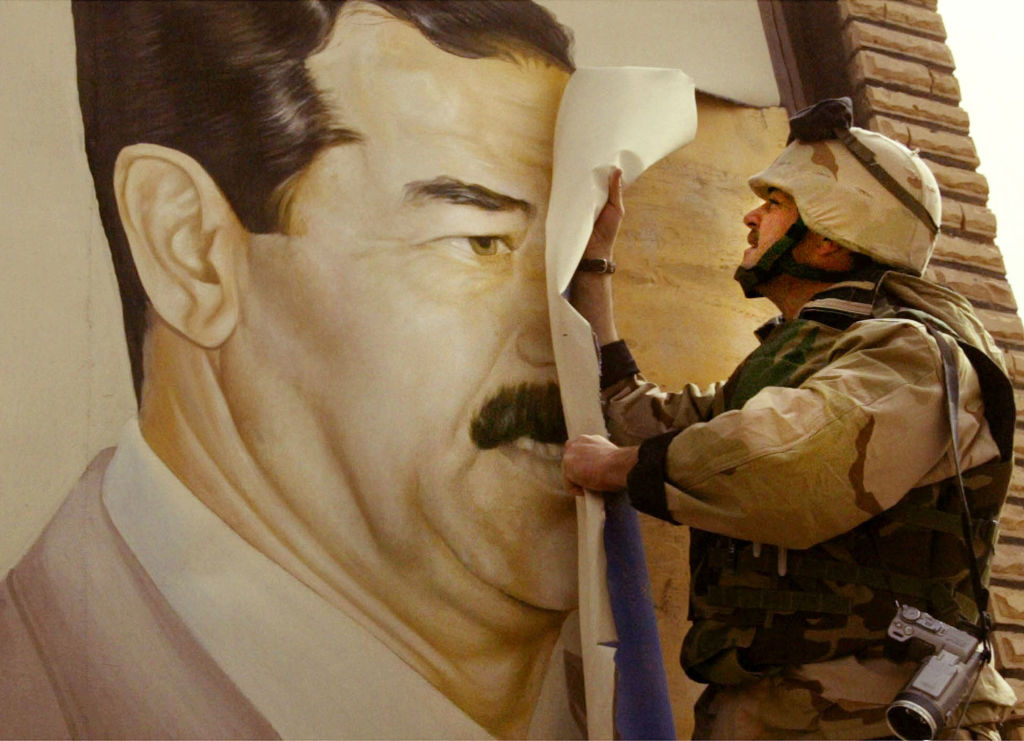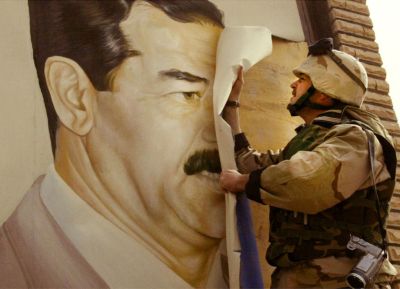Twenty years ago, the United States invaded Iraq in what the George W. Bush administration expected to be a short, sharp war to remove Iraqi dictator Saddam Hussein from power, eliminate his arsenal of weapons of mass destruction, and turn Iraq into a democracy that would become a beacon of hope for people across the Middle East. The first objective was achieved, the second proved unnecessary, and the third is still a work in progress. After the fall of Baghdad in just three weeks, U.S. and coalition forces struggled to rebuild a government, leading to more than eight years of military operations until the withdrawal of U.S. forces at the end of 2011. The inability of U.S. and coalition forces to stabilize Iraq after the fall of the Baathist regime is not a reflection of their expertise, combat effectiveness, or courage, but rather a result of the planning assumptions made by senior administration political and military leaders in the runup to the war.
Every military plan rests on certain assumptions, either explicitly understood or implicitly made by its creators. The Bush administration rested its Iraq war plan on three assumptions, all of which turned out to be flawed. The first assumption was that the Iraqi people would freely cooperate with coalition forces in rebuilding Iraq after Saddam was ousted from power. He was, after all, a vicious dictator who had killed tens of thousands of Iraqis during his quarter-century in power. A corollary was that the Iraqi people would accept the installation of a democratic form of government and a capitalist market economy. Since in the view of Americans these were the best political and economic systems the world has ever known, it did not occur to administration leaders that Iraqis might have different opinions on the subject.
While many Iraqis rejoiced at Saddam’s downfall, there was a significant minority who had benefited from his rule. The head of the Coalition Provisional Authority, Ambassador L. Paul Bremer III, set the political conditions for an insurgency by ousting these Iraqis (mostly Sunni Arabs, but some others as well) from their positions with a draconian de-Baathification decree enacted five weeks after the fall of Baghdad. Bremer compounded this misstep by disbanding the Iraqi army, thus invalidating the second planning assumption, which was that the Iraqi army would help to secure the country in the invasion’s aftermath. This order left hundreds of thousands of armed, unemployed men in limbo, and it dishonored the officer corps, many of whom took their not inconsiderable skills with them into the insurgency.
The third assumption was that the international community would step up in the aftermath of conflict to help stabilize Iraq. Given the international outcry over the administration’s rush to war, President Bush and his advisers should have seen problems with this assumption from the outset. But invalidating it would have required a much more robust force structure for the invasion and a longer period of occupation duty, which would have created domestic political difficulties for the administration. So instead of facing reality, Bush and his advisers assumed away the problem.
All three assumptions enabled an invasion of Iraq with a much smaller force structure than was required to stabilize the country—if they had panned out. It took far too long—until the decision to surge U.S. forces to Iraq in early 2007—for President Bush to realize that the assumptions were wrong and to order a significant buildup of the U.S. military presence to stabilize Iraq. By then a virulent insurgency had erupted, bolstered by an influx of jihadi terrorists; Iranian-supplied arms, equipment, and cash supported a growing number of Shi’ite militias; and civil war gripped the country. The surge restored stability to Iraq, but by then sectarian tensions were baked into Iraqi politics. The withdrawal of U.S. forces from Iraq in 2011 enabled Iraqi Prime Minister Nouri al-Maliki to turn on his political opponents, which rekindled the fires of civil war and paved the way for the invasion of the country by ISIS. Only after the destruction of ISIS was Iraq able to move forward again. The state has held together, politics are fragile but evolving, and Iraqis are determining their own future. But we are left to wonder how the conflict would have played out had a more robust force structure been provided in the first place to stabilize the country following regime change.
Of course, such a force structure would have been unnecessary had the Bush administration not invaded Iraq. The major lesson of the Iraq War is clear—war rarely goes as quickly or as easily as predicted, even with a massive disparity between the opponents. Vladimir Putin is relearning this lesson today in Ukraine. Thus, war should be the last resort of policy rather than the primary option chosen in the belief that it will solve one’s problems with a minimal cost in blood, treasure, and commitment. The surest way to get out of forever wars is to not get into them in the first place.






Please note that we at The Dispatch hold ourselves, our work, and our commenters to a higher standard than other places on the internet. We welcome comments that foster genuine debate or discussion—including comments critical of us or our work—but responses that include ad hominem attacks on fellow Dispatch members or are intended to stoke fear and anger may be moderated.
With your membership, you only have the ability to comment on The Morning Dispatch articles. Consider upgrading to join the conversation everywhere.